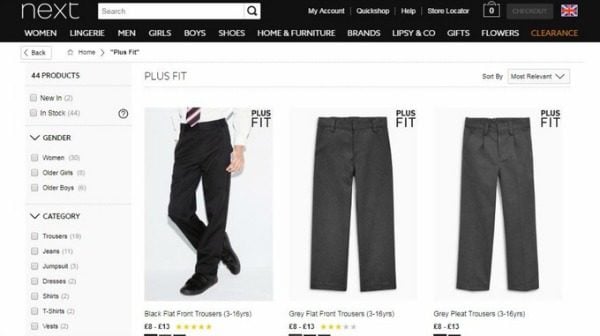This week a UK clothing retailer launched a plus-sized clothing range for children. The range caters for kids three to 16 years and features jeans and tracksuit pants with larger than normal waists.
Also this week a coalition of Australian health groups lobbied the Federal government to introduce a sugar tax on drinks.
As part of an eight-point plan to tackle Australia’s emerging obesity problem, the 20 per cent tax on sugary drinks is intended to work much like the tobacco tax where a packet of cigarettes can now cost around $40. Eventually, health experts are hoping, cigarettes or sugary drinks will just be too expensive to justify.
Two very different responses to one very big issue.
What no one is denying is that we are getting very fat (in developed countries). It’s how we are responding to that information that is dividing people. The UK Telegraph reports that a plus-sized children’s range is evidence that childhood obesity has moved beyond epidemic proportions because it is now considered normal.
Should we accept we are getting fatter as retailer Next has done and offer lifestyle solutions for this growing market, or should we try to combat the issue as the coalition of health groups are asking the government to do?
If we do accept our growing waistlines as a nation, should we implement an obesity levy in our annual tax to make sure there is enough money in the government health coffers to pay for the inevitable increased load on the health system, because this increase in weight is causing a corresponding heightening of demand on an already stretched health system.


Top Comments
Does a plus-size clothing range for children mean we’ve given up fighting childhood obesity?
no but unless you want them running around in the nude they will need clothes
I was one of those obese kids except in the 70s and 80s I was a minority. It was hell, I hated being fat and was teased relentlessly for it. It altered my whole childhood and choices I made as an adult. It was a direct result of parents who couldn’t say no and had no idea how to manage the onslaught of sugary, fatty junk food prevalent in those times. They’d grown up when those foods weren’t readily available so didn’t realise the impact it would have to allow junk food as part of a normal diet. I had trouble getting clothes and ended up with womens sizes looking silly and inappropriate on me, which increased the bullying. It was a miserable experience. Having said that there is no way I would let one of my three kids get fat. We need intervention for kids if they are overweight or obese to support the family in making changes. I wish my parents had had the help they needed to change. Kids don’t buy junk food, their parents do. I see fat kids and want to say to the parents that they are harming their kids. I see what happened to me as a sort of childhood disfigurement that was so unnecessary. Tax the sugar and junk food, get rid of advertising for junk food and put the money into programs for overweight kids and parents. If the junk food had been expensive my parents would’nt have bought so much of it.